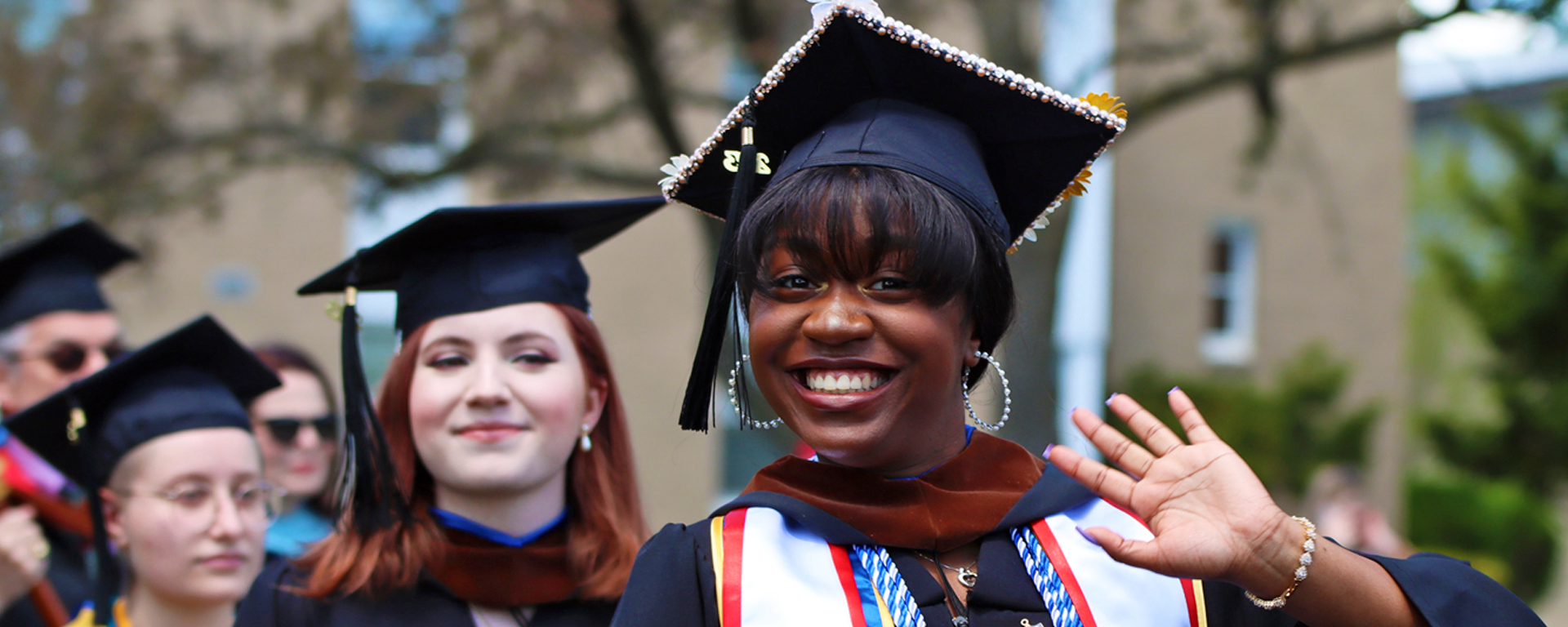
Bachelor's degrees at Centenary
Undergraduate programs
Bachelor of Science in Accounting
Bachelor of Science in Business Administration: Accounting
Bachelor of Science in Business Administration: Data Analytics
Bachelor of Science in Business Administration: Finance
Bachelor of Science in Business Administration: Management
Bachelor of Science in Business Administration: Marketing
Bachelor of Science in Business Administration: Project Management
Bachelor of Science in Business Administration: Social Media Marketing
Bachelor of Science in Business Administration: Sports & Entertainment Management
Bachelor of Science in Business Administration: Supply Chain Management
Bachelor of Science in Business Administration: Sustainable Practices
Bachelor of Arts in Communication: Radio, TV, and Film Concentration
Bachelor of Science in Computer Science
Bachelor of Science in Cybersecurity: Data Analytics
Bachelor of Science in Cybersecurity: Management
Minors: Communication, Data Analytics, Film Studies, Creative Writing, Journalism, Management, Marketing, Professional Writing, Social Media Marketing, Sports & Entertainment Management, and Sustainable Practices
View the Public Disclosure of Student Achievement here.
The Business Department at Centenary University has received specialized accreditation for its business program(s) through the International Accreditation Council for Business Education (IACBE) located at 11960 Quivira Road in Overland Park, Kansas, USA. For a list of accredited programs please view our IACBE member status page.
Undergraduate programs
Bachelor of Arts in Digital Humanities
Bachelor of Arts in English: Creative Writing
Bachelor of Arts in English: Professional Writing
Bachelor of Arts in English: Humanities
Bachelor of Arts in English: Digital Humanities
Bachelor of Science in Education: Biology
Bachelor of Arts in Education: English (K-12)
Bachelor of Science in Education: Mathematics
Bachelor of Arts in Education: Social Studies
Bachelor of Arts in Theatre Arts: Education
Bachelor of Arts in Elementary Education: Liberal Arts
Bachelor of Arts in Individualized Studies
Undergraduate programs
Bachelor of Science in Biology
Bachelor of Science in Biology: Environmental Science Concentration
Bachelor of Science in Biology: Forensic Science Concentration
Bachelor of Science in Biology: Pre-Healthcare Concentration
Bachelor of Arts in Criminal Justice
Bachelor of Science in Exercise Science
Bachelor of Science in Forensic Science
Bachelor of Science in Health Science
Bachelor of Science in Medical Laboratory Science
Bachelor of Arts in Psychology
Bachelor of Science in Public Health
Bachelor of Science in Education: Biology
Undergraduate programs
Associate of Science in Equine Studies
Bachelor of Science in Animal Health (Pre-Vet)
Bachelor of Science in Equine Science
Bachelor of Science in Equine Studies
Bachelor of Science in Equine Studies: Equestrian Media and Public Relations
Bachelor of Science in Equine Studies: Equine Assisted Services
Bachelor of Science in Equine Studies: Equine Business Management
Bachelor of Science in Equine Studies: Equine Training & Instruction
Undergraduate programs
Bachelor of Arts in Theatre Arts
Bachelor of Arts in Theatre Arts: Costume Design
Bachelor of Arts in Theatre Arts: Dance
Bachelor of Arts in Theatre Arts: Education
Bachelor of Fine Arts in Musical Theatre
Bachelor of Arts in Theatre Arts: Performance Studies
Bachelor of Arts in Theatre Arts: Production Management
Bachelor of Arts in Theatre Arts: Technical Theatre
Bachelor of Arts in Theatre Arts: Theatre Management
Bachelor of Fine Arts in Fashion
Concentrations
Costume Design
Dance
Education: Theatre
Musical Theatre
Performance Studies
Production Management
Technical Theatre and Design
Theatre Management
BA in Psychology
BS in Accounting
BS in Business Administration with concentrations in Accounting, Data Analytics, Management, Marketing, Social Media Marketing, or Sustainable Practices
BS in Nursing (BSN)
AA in Liberal Arts